Description
Flomist Nasal Spray – Effective Relief from Allergic Rhinitis
Flomist Nasal Spray is a corticosteroid medication designed to relieve symptoms of allergic rhinitis such as a blocked or runny nose, sneezing, and sinus discomfort. It works by inhibiting the production of certain chemical messengers responsible for inflammation and allergic responses, providing effective relief from nasal irritation and swelling.
How to Use Flomist Nasal Spray?
Always use it exactly as prescribed by your doctor. To achieve the full therapeutic benefit, it must be used regularly. Before application, gently blow your nose. Insert the spray nozzle into one nostril while keeping the other closed. Spray the medicine while sniffing gently. Repeat the process for the other nostril.
Benefits of Flomist Nasal Spray:
It belongs to a group of medicines called corticosteroids. It effectively reduces swelling and irritation in the nasal passages, alleviating symptoms such as nasal congestion, sneezing, and itchy or watery eyes. It helps prevent allergic reactions triggered by pollen, dust mites, or mold, enabling a better quality of life and uninterrupted daily activities. Regular use is essential for optimal results. If symptoms persist beyond a week, consult your doctor.
Uses of Flomist Nasal Spray:
Side Effects of Flomist Nasal Spray:
Most side effects are mild and temporary. However, consult your doctor if they persist or cause concern.
- Nasal irritation
- Headache
- Nosebleeds
How Flomist Nasal Spray Works?
It is a steroid-based nasal spray that blocks the production of inflammation-causing chemical messengers inside the nose. This action reduces symptoms of allergic rhinitis and nasal congestion.
Safety Advice:
- Alcohol: No interaction found or established.
- Pregnancy: Consult your doctor. Limited human data is available. Animal studies have shown possible risks. Your doctor will weigh the benefits versus risks.
- Breastfeeding: Safe if prescribed. Available data suggests no significant risk to the baby.
- Driving: No interaction found or established.
- Kidney: No interaction found or established.
- Liver: No interaction found or established.
Drug Interactions:
Combining it with certain medications may alter its effects. Consult your doctor before use.
- Verapamil (Injection/Oral Route): May increase the effect of Fluticasone Propionate. Report unusual symptoms.
- Fluconazole (Injection/Oral Route): May alter Fluticasone metabolism. Liver function monitoring may be required.
- Atezolizumab (Injection Route): Avoid use of Fluticasone before Atezolizumab. May reduce its effectiveness. Consult your doctor.
FAQs:
How long does Nasal Spray take to relieve the symptoms of allergy?
It may take a few days of consistent use for full relief. Consult your doctor if symptoms persist or worsen.
What happens if I take more than the prescribed dose of Flomist Nasal Spray?
Do not exceed the prescribed dose as it may cause unwanted side effects. Always follow your doctor’s guidance.
I recently had nose surgery, can I use Flomist Nasal Spray?
No, do not use it post-surgery or during nasal infections without consulting your doctor. It may worsen your condition.
Can Flomist Nasal Spray be used to treat an asthma attack?
No, it is not suitable for treating asthma attacks. It is meant for allergy symptoms like sneezing and runny nose.
I am experiencing a headache, is it because of the Spray?
Yes, headache is a common side effect. Stay hydrated, rest, and consult your doctor if it continues.
What lifestyle changes help with allergies?
Avoid exposure to allergens like dust, pollen, and pet dander. Take showers and change clothes after outdoor exposure. Use masks during high pollen seasons.

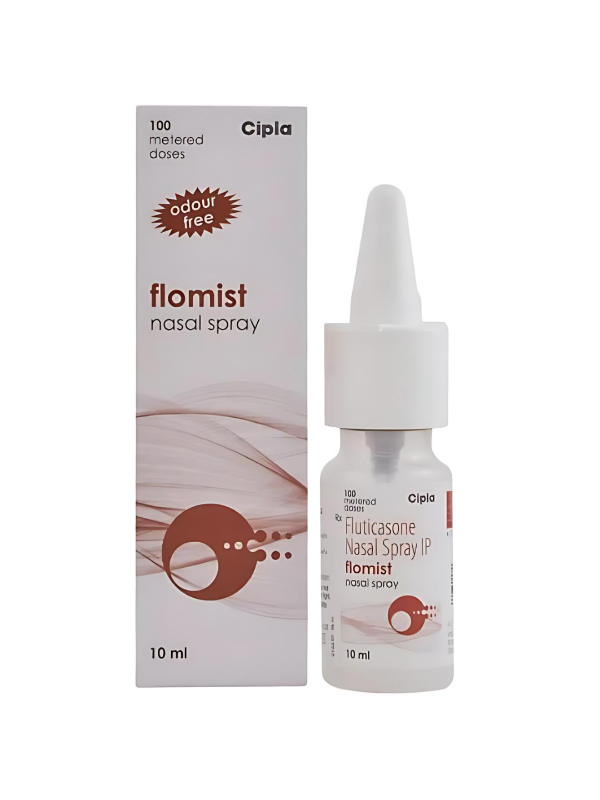

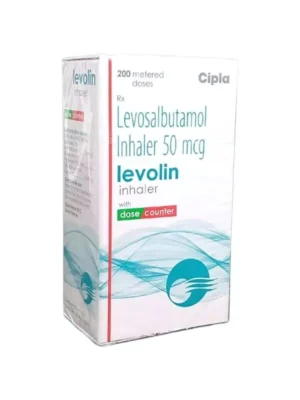
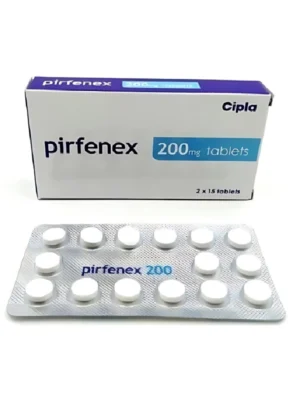

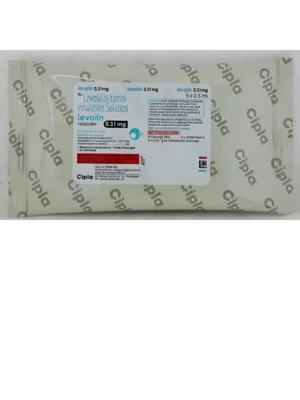
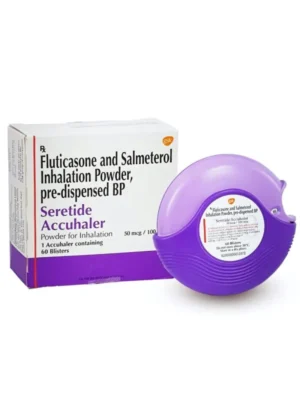
There are no reviews yet.